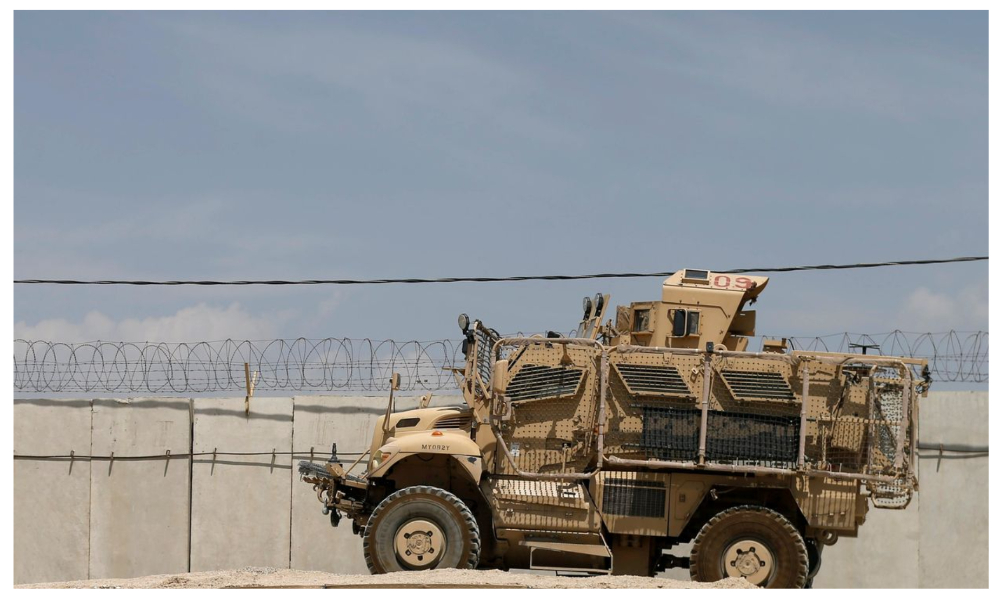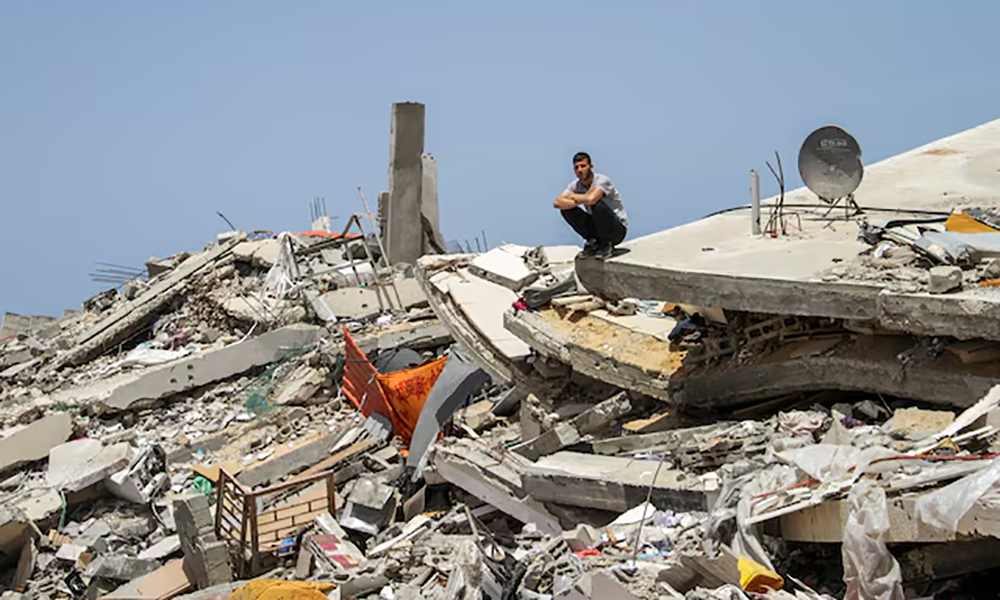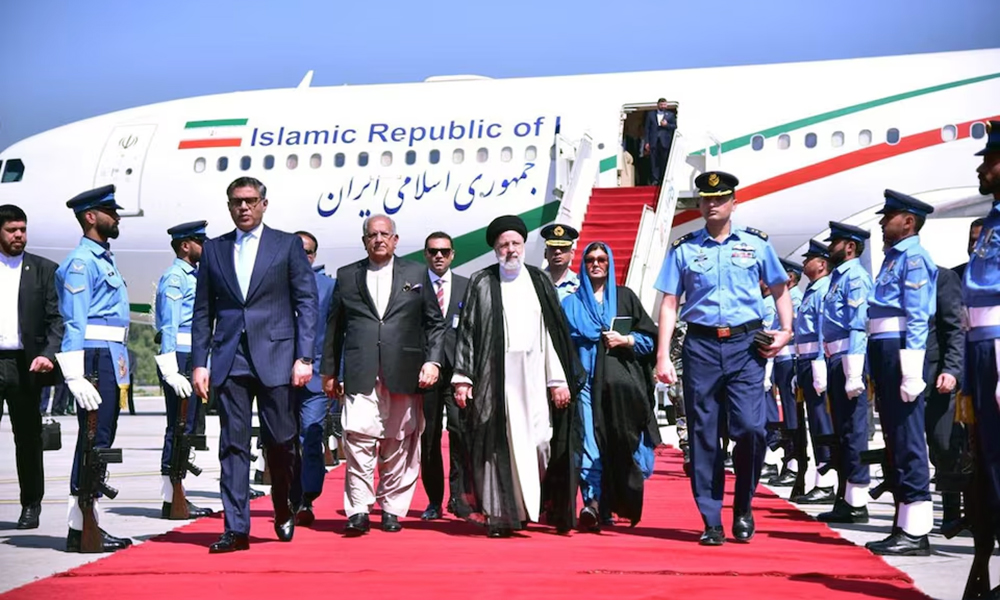Regional
Russia concerned about weapons abandoned by the West in Afghanistan

The large hotbed of instability in Afghanistan created by the West could spread to all countries of the region, Russian Security Council Secretary Nikolay Patrushev said on Wednesday at a meeting of regional countries on Afghanistan.
Patrushev explained that this was also due to arms “abandoned by the Western coalition in enormous amounts” when troops withdrew from Afghanistan.
“We are talking about more than a thousand armored vehicles and armored personnel carriers, dozens of aircraft and helicopters, hundreds of artillery pieces, mortars, anti-tank and anti-aircraft systems, as well as hundreds of thousands of heavy and light small arms worth tens of billions of dollars,” the security chief listed as reported by TASS news agency.
According to him, these weapons can be used both to intensify the armed struggle between intra-Afghan groups and sold on the black market, including to terrorists in third countries.
He said that Washington and its allies seek to maintain old and create new hotbeds of tension around the world.
“Uniting our efforts in solving security tasks is especially important at the current stage, when the US and its allies are pursuing policies aimed at maintaining old or creating new hotbeds of tension around the world,” he said.
According to Patrushev, one of these hotbeds is Afghanistan, where “over 20 years of the presence of Western military contingents, preconditions for long-term challenges and threats” to the countries of the entire region have been consistently formed.
“In particular, the West indulged in stepping up the activities of international terrorist organizations, first of all ISIS and al-Qaeda, which swelled its ranks thanks to fighters from Iraq, Syria and some other countries. We all remember quite well the unmarked helicopters that delivered weapons and ammunition to the ISIS mercenaries in the American airspace control zone,” he noted.
In addition, the Russian security chief recalled that the Americans had contributed to the growth of drug trafficking in Afghanistan. “Today the incumbent Kabul authorities are still reaping the fruits of the chaos left by the Americans, and the situation in the socio-economic sphere is rapidly deteriorating,” he summarized.
Meanwhile, Secretary of the Supreme National Security Council of Iran Ali Shamkhani said at the meeting that the crisis in Iraq, the creation of Daesh, as well as the conflict in Ukraine are results of US policies.
“Peace, stability and progress in Afghanistan are our priority, [the priority] of all those seated around this table. We believe and proceed from the fact that the presence of the United States destabilizes the region. Afghanistan confirms this. The events in Iraq, the creation of the Islamic State in the Levant region, and also, the events in Ukraine occurred as a result of arrogant actions by the United States. The people of Ukraine have fallen victim to US aims,” he said.
The fifth meeting of the secretaries of national councils from the countries of Central Asia, Pakistan, India and China on Afghanistan is taking place in Moscow on Wednesday.
Regional
New UK sanctions target Iranian drone industry

Britain on Thursday announced new sanctions targeting Iran’s military drone industry, in response to Iran’s drone and missile attack on Israel earlier this month.
The measures, taken in co-ordination with the U.S. and Canada, target four businesses and two directors at a network of drone companies with the aim of limiting Iran’s ability to launch drones.
“The Iranian regime’s dangerous attack on Israel risked thousands of civilian casualties and wider escalation in the region,” British Foreign Secretary David Cameron said in a statement.
“Today the UK and our partners have sent a clear message – we will hold those responsible for Iran’s destabilising behaviour to account.”
Britain also said it would introduce new bans on the export of drone and missile components to Iran, seeking to limit its military capabilities.
Last week, Britain imposed sanctions on Iranian military figures and organisations, in another coordinated move with the United States, following Iran’s action against Israel.
Iran launched drones and fired missiles at Israel on April 13 as a retaliatory strike for the attack on its embassy compound in Damascus two weeks prior, raising the risk of further escalation in conflict in the Middle East.
(Reuters)
Regional
Turkey accuses U.S. of double standards over Gaza in rights report

Turkey on Wednesday accused the United States of having a policy of double standards on human rights, saying Washington’s annual rights report failed to reflect Israel’s assaults in Gaza, Reuters reported.
Turkey’s foreign ministry said in a statement it was deeply concerned that the U.S. report did not “duly reflect the ongoing inhumane attacks in Gaza”.
The report was prepared with “political motives, far from impartiality and objectivity”, it said, calling on Washington to cease its “double-standard policy on human rights”.
It also cited U.S. ties with the Syrian Kurdish YPG militia which Ankara deems a terrorist organisation.
Israeli forces have killed more than 34,000 Palestinians in Gaza, according to health authorities there, many of them civilians and children. The enclave has been reduced to a wasteland and extreme food shortages have prompted fears of famine.
Israel launched its assault in response to an attack by the Hamas militant group on Oct. 7 in which Israel says 1,200 people were killed. It denies allegations of deliberately causing humanitarian suffering and targeting civilians.
Turkey has denounced Israel for its campaign in Gaza and called for a ceasefire. It has also criticised Western countries for what it calls their unconditional support of Israel, read the report.
In its report, the U.S. State Department said Israel’s war against Hamas had a “significant negative impact” on the human rights situation in Israel.
On Monday, U.S. Secretary of State AntZony Blinken rejected suggestions that Washington might have double standards over Israel’s record.
Regional
Iranian president lands in Pakistan for three-day visit to mend ties

Iranian President Ebrahim Raisi arrived in Islamabad on Monday on a three-day official visit, the foreign office said, amid tight security in the Pakistani capital, Reuters reported.
The visit, which Pakistan’s foreign office said would run until Wednesday, comes as the two Muslim neighbours seek to mend ties after unprecedented tit-for-tat military strikes this year.
“The Iranian president is accompanied by his spouse and a high-level delegation,” Pakistan’s foreign ministry said in a statement, adding that the group also included the foreign minister, other cabinet members and senior officials.
Raisi will meet Prime Minister Shehbaz Sharif and other officials, besides visiting the eastern city of Lahore and southern port city of Karachi, it added.
Major highways in Islamabad were blocked as part of the security measures for Raisi’s arrival, while the government declared a public holiday in Karachi, read the report.
Raisi’s visit is a key step towards normalising ties with Islamabad, but Iran’s supreme Leader Ayatollah Ali Khameni, not the president, has the last say on state matters, such as nuclear policy.
Tension is also high in the Middle East after Iran launched an unprecedented attack on Israel a week ago and central Iran in turn suffered what sources said was an Israeli attack on Friday.
Pakistan and Iran have had a history of rocky relations despite a number of commercial pacts, with Islamabad being historically closer to Saudi Arabia and the United States.
Their highest profile agreement is a stalled gas supply deal signed in 2010 to build a pipeline from Iran’s South Fars gas field to Pakistan’s southern provinces of Balochistan and Sindh, Reuters reported.
Despite Pakistan’s dire need of gas, Islamabad has yet to begin construction of its part of the pipeline, citing fears over U.S. sanctions – a concern Tehran has rejected.
Pakistan said it would seek waivers from the U.S., but Washington has said it does not support the project and warned of the risk of sanctions in doing business with Tehran.
Faced with the possibility of contract breach penalties running into the billions of dollars, Islamabad recently gave the go-ahead for construction of an 80-km (50-mile) stretch of the pipeline.
-

 Latest News3 days ago
Latest News3 days agoRashid Khan named AWCC’s brand ambassador
-

 Regional4 days ago
Regional4 days agoIranian president lands in Pakistan for three-day visit to mend ties
-

 Sport4 days ago
Sport4 days agoKolkata beat Bengaluru by one run in IPL as Kohli fumes at dismissal
-

 Sport4 days ago
Sport4 days agoACL: Aino Mina 3-0 Istiqlal Kabul; Attack Energy 3-0 Khadim
-

 Climate Change4 days ago
Climate Change4 days agoRescuers race to reach those trapped by floods in China’s Guangdong
-

 Business5 days ago
Business5 days agoAfghanistan, Kazakhstan to hold joint expo in Kabul
-

 World3 days ago
World3 days agoMalaysian navy helicopters collide in mid-air, 10 killed
-

 Sport3 days ago
Sport3 days agoJaiswal ton powers Rajasthan to big IPL win
























